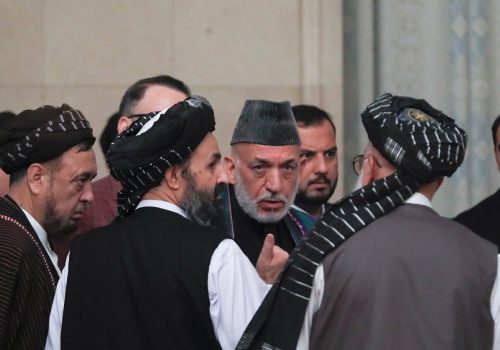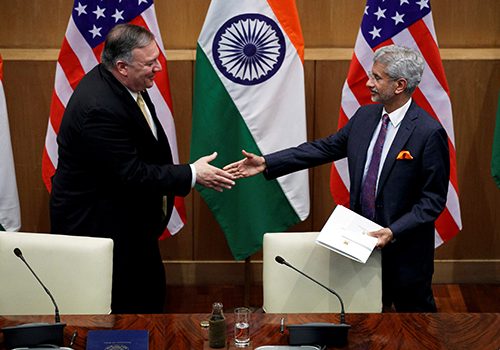On October 1st, 2019, the Atlantic Council’s South Asia Center hosted a roundtable conversation with Dr. Subrahmanyam Jaishankar, Minister of External Affairs of the Republic of India. The discussion focused on the future of US-India relations amidst a renewed Western focus on geopolitics and economic development in the region.
In his opening remarks, Dr. Jaishankar asserted that a new, more positive and mutually beneficial compact is forming between what he terms “New India” and the Western world. He argued that a “global rebalancing” of political and economic power is underway, and that Western countries should recognize and accept the growing influence of developing countries such as India. Dr. Jaishankar pointed to the growing importance of the G-20 instead of G-7 meetings is evidence of this broader structural change in global geopolitics, and of the rapid emergence of a multipolar geopolitical order.
Dr. Irfan Nooruddin, Director of the South Asia Center, began the moderated discussion by asking what the implications of seemingly warm relations between US President Donald Trump and Indian Prime Minister Narendra Modi were for the US-India bilateral relationship in the face of wide-ranging divergences on trade and regulatory approaches.
The roundtable was then opened up for questions from the audience. Mr. Mark Linscott, Senior Nonresident Fellow at the South Asia Center, inquired as to the prospect of a US-India trade agreement being finalized in the coming weeks. Ambassador Omar Samad asked about Indian participation in the Afghan peace process and how that relates to future India-Pakistan-Afghanistan relations.
Dr. S. Jaishankar overall shed new light on the constantly evolving and dynamic relationship between India, greater South Asia, and the Western world. The growth of Indian economic influence and emerging multipolarity of the global economic system underscore a new balance in which “the West needs India, but India also needs the West.”

